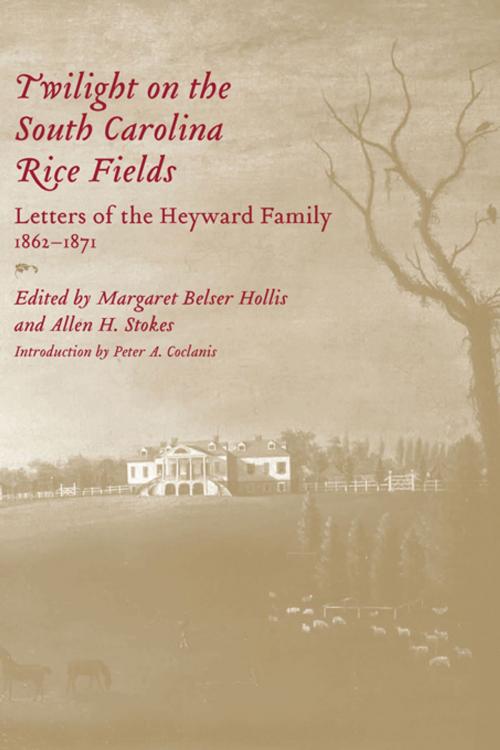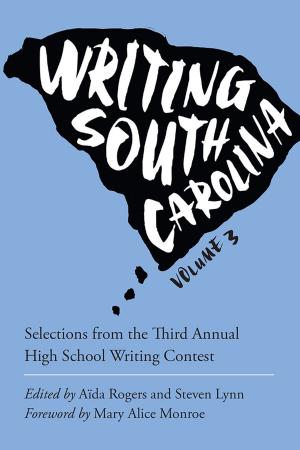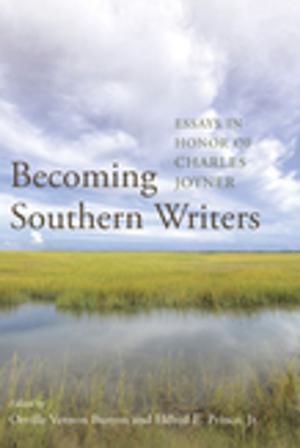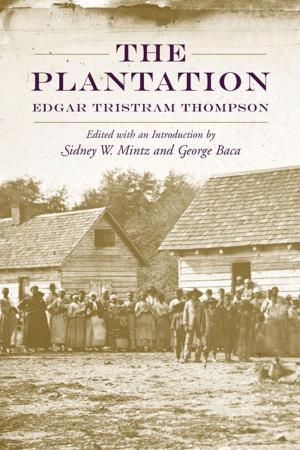Twilight on the South Carolina Rice Fields
Letters of the Heyward Family, 1862-1871
Nonfiction, History, Americas, United States, Civil War Period (1850-1877)| Author: | ISBN: | 9781611172300 | |
| Publisher: | University of South Carolina Press | Publication: | December 7, 2012 |
| Imprint: | University of South Carolina Press | Language: | English |
| Author: | |
| ISBN: | 9781611172300 |
| Publisher: | University of South Carolina Press |
| Publication: | December 7, 2012 |
| Imprint: | University of South Carolina Press |
| Language: | English |
The Civil War and Reconstruction eras decimated the rice-planting enterprise of the South, and no family experienced the effects of this economic upheaval quite as dramatically as the Heywards of South Carolina, a family synonymous with the wealth of the old rice kingdom in the Palmetto State. Twilight on the South Carolina Rice Fields collects the revealing wartime and postbellum letters and documents of Edward Barnwell "Barney" Heyward (1826–1871), a native of Beaufort District and grandson of Nathaniel Heyward, one of the most successful rice planters and largest slaveholders in the South. Barney Heyward was also the father of South Carolina governor Duncan Clinch Heyward, author of Seed from Madagascar,the definitive account of the rice kingdom's final stand a generation later. Edited by Margaret Belser Hollis and Allen H. Stokes, the Heyward family correspondence from this transformational period reveals the challenges faced by a once-successful industry and a once-opulent society in the throes of monumental change. During the war Barney Heyward served as a lieutenant in the engineering division of the Confederate army but devoted much of his time to managing affairs at his plantations near Columbia and Beaufort. His letters chronicle the challenges of preserving his lands and maintaining control over the enslaved labor force essential to his livelihood and his family's fortune. The wartime letters also provide a penetrating view of the Confederate defense of coastal South Carolina against the Union forces who occupied Beaufort District. In the aftermath of the conflict, Heyward worked with only limited success to revive planting operations. In addition to what these documents reveal about rice cultivation during tumultuous times, they also convey the drama, affections, and turmoil of life in the Heyward family, from Barney's increasingly difficult relations with his father, Charles Heyward, to his heartfelt devotion to his wife, the former Catherine "Tat" Maria Clinch, and their children.
The Civil War and Reconstruction eras decimated the rice-planting enterprise of the South, and no family experienced the effects of this economic upheaval quite as dramatically as the Heywards of South Carolina, a family synonymous with the wealth of the old rice kingdom in the Palmetto State. Twilight on the South Carolina Rice Fields collects the revealing wartime and postbellum letters and documents of Edward Barnwell "Barney" Heyward (1826–1871), a native of Beaufort District and grandson of Nathaniel Heyward, one of the most successful rice planters and largest slaveholders in the South. Barney Heyward was also the father of South Carolina governor Duncan Clinch Heyward, author of Seed from Madagascar,the definitive account of the rice kingdom's final stand a generation later. Edited by Margaret Belser Hollis and Allen H. Stokes, the Heyward family correspondence from this transformational period reveals the challenges faced by a once-successful industry and a once-opulent society in the throes of monumental change. During the war Barney Heyward served as a lieutenant in the engineering division of the Confederate army but devoted much of his time to managing affairs at his plantations near Columbia and Beaufort. His letters chronicle the challenges of preserving his lands and maintaining control over the enslaved labor force essential to his livelihood and his family's fortune. The wartime letters also provide a penetrating view of the Confederate defense of coastal South Carolina against the Union forces who occupied Beaufort District. In the aftermath of the conflict, Heyward worked with only limited success to revive planting operations. In addition to what these documents reveal about rice cultivation during tumultuous times, they also convey the drama, affections, and turmoil of life in the Heyward family, from Barney's increasingly difficult relations with his father, Charles Heyward, to his heartfelt devotion to his wife, the former Catherine "Tat" Maria Clinch, and their children.















